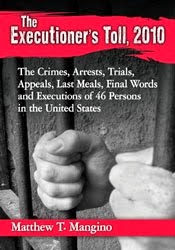Every day, police rely on common tactics that, unlike guns, are meant to stop people without killing them, such as physical holds, Tasers and body blows. But when misused, these tactics can still end in death — as happened with George Floyd in 2020, sparking a national reckoning over policing, reported the Associated Press. And while that encounter was caught on video, capturing Floyd’s last words of “I can’t breathe,” many others throughout the United States have escaped notice.
Over a decade, more than 1,000 people died after police subdued them
through means not intended to be lethal, an investigation led by The Associated Press found. In
hundreds of cases, officers weren’t taught or didn’t follow best safety
practices for physical force and weapons, creating a recipe for death.
These sorts of deadly
encounters happened just about everywhere, according to an analysis of a
database AP created. Big cities, suburbs and rural America. Red states and
blue states. Restaurants, assisted-living centers and, most commonly, in or
near the homes of those who died. The deceased came from all walks of life — a
poet, a nurse, a saxophone player in a mariachi band, a truck driver, a sales
director, a rodeo clown and even a few off-duty law enforcement officers.
The toll, however, disproportionately fell on Black
Americans like Grant and Ivy. Black people made up a third of those who died despite
representing only 12% of the U.S. population. Others feeling the brunt were
impaired by a medical, mental health or drug emergency, a group particularly
susceptible to force even when lightly applied.
“We were robbed,” said Carl Grant’s sister, Kathy Jenkins,
whose anger has not subsided four years later. “It’s like somebody went in your
house and just took something, and you were violated.”
AP’s three-year investigation was done in collaboration with
the Howard Center for Investigative Journalism programs at the University of
Maryland and Arizona State University, and FRONTLINE (PBS). The AP and its
partners focused on local police, sheriff’s deputies and other officers
patrolling the streets or responding to dispatch calls. Reporters filed nearly
7,000 requests for government documents and body-camera footage, receiving more
than 700 autopsy reports or death certificates, and uncovering video in at
least four dozen cases that has never been published or widely distributed.
LETHAL RESTRAINT INVESTIGATION
Many more people have died after police subdued them than the American public
knows.
- The AP found that over a decade, more than 1,000 people died after police subdued them
with physical force that is not supposed to be lethal. Explore the full database of cases here.
- New details open fresh wounds for a mother who had
believed her son died of an overdose.
- AP found encounters that ended in death disproportionately affected Black Americans.
Medical officials cited law enforcement as causing or
contributing to about half of the deaths. In many others, significant police
force went unmentioned and drugs or preexisting health conditions were blamed
instead.
Video in a few dozen cases showed some officers mocked
people as they died, laughing or making comments such as “sweaty little hog,”
“screaming like a little girl” and “lazy f---.” In other cases, officers
expressed clear concern for the people they were subduing.
The federal government has struggled for years to count
deaths following what police call “less-lethal force,” and the little
information it collects is often kept from the public and highly incomplete at
best. No more than a third of the cases the AP identified are listed in federal
mortality data as involving law enforcement at all.
When force came, it could be sudden and extreme, the AP
investigation found. Other times, the force was minimal, and yet the people
nevertheless died, sometimes from a drug overdose or a combination of factors.
In about 30% of the cases, police were intervening to stop
people who were injuring others or who posed a threat of danger. But roughly
25% of those who died were not harming anyone or, at most, were committing
low-level infractions or causing minor disturbances, AP’s review of cases
shows. The rest involved other nonviolent situations with people who, police
said, were trying to resist arrest or flee.
To read more CLICK HERE










